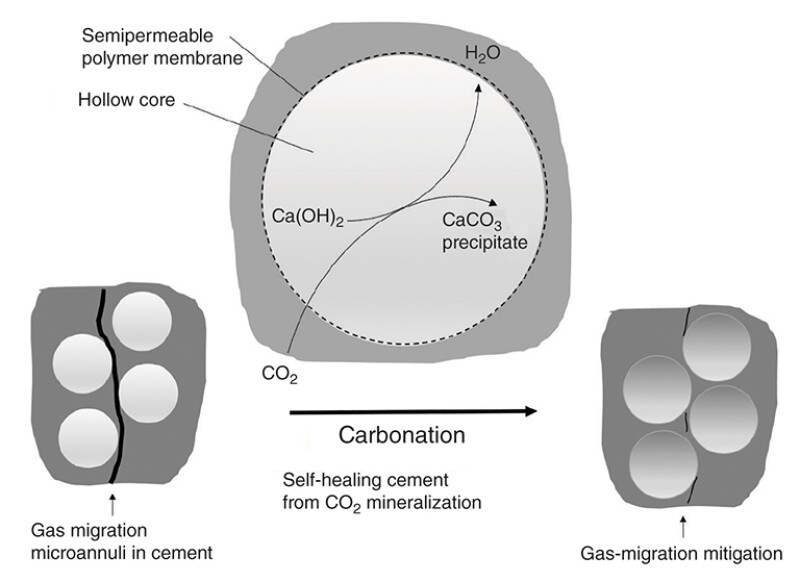The complete paper describes a cementing additive chemically engineered to react with formation fluids that act antagonistically toward cement. Engineered polymer capsules house encapsulants to react with antagonistic gases downhole, such as carbon dioxide (CO2), to form a more benign and beneficial material. Embedded in cement, the polymer capsules with semipermeable shells allow fluids to permeate and react with encapsulants to produce beneficial byproducts, such as calcite and water from CO2. Reactivity between the encapsulant and antagonist gas CO2 is demonstrated using thermal gravimetric analysis (TGA) and other tests from oilfield equipment.
Cementing Applications for Polyaramide Vesicles
The study presents the third and final technology for polyaramide vesicles, a novel polymeric material for cement enhancement and for multifaceted cement applications. In oil and gas wells, polyaramide vesicles have applications as a cement additive with delivery capabilities.


